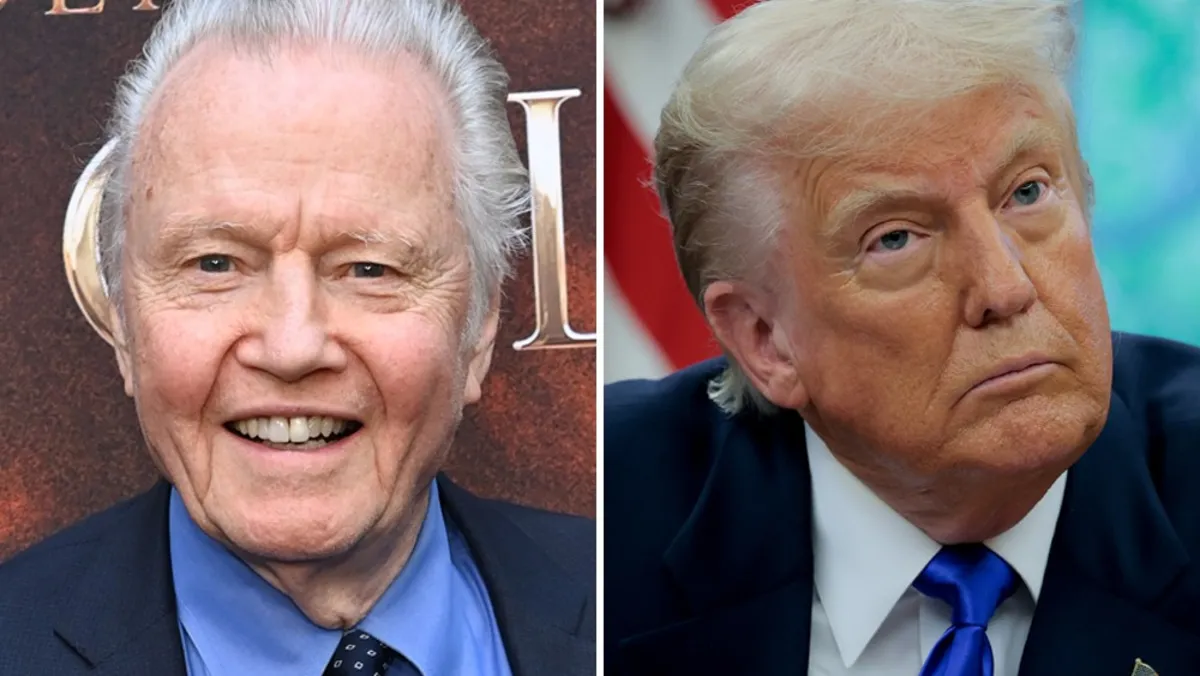
Several decades ago, Jon Voight first crossed paths with Donald Trump at an Oscars afterparty. Although the Academy Award-winning actor can’t pinpoint the exact year, he believes it was shortly after the release of Franco Zeffirelli’s 1979 sports classic, The Champ. During this initial meeting, the two men formed a connection over the film, with Voight’s iconic portrayal of a former boxer seeking personal redemption through a return to the ring. “He loves that movie,” Voight recalls, speaking of the president's admiration. “He also loves Rocky, and there’s a playful debate about which film reigns supreme.”
Fast forward to today, Voight is actively collaborating with President Trump—a politician he has passionately supported since 2016—on a crucial initiative aimed at addressing the issue of runaway production in the film industry. Their goal is simple yet profound: to “give people back their dignity and their jobs.” Voight emphasizes, “Something has to be done, and it’s way past time.”
In a surprising turn of events, President Trump’s recent announcement on social media, calling for 100% tariffs “on any and all movies coming into our country that are produced in foreign lands,” sent shockwaves through Hollywood. While many in the industry agree that federal assistance is necessary, the unclear nature of Trump’s proposal prompted skepticism and negative headlines.
Variety connected with Voight via phone while he was en route, possibly through a car wash. He opted not to delve into specific details or logistics, preferring instead to let the draft presentation he is leading—alongside producer Steven Paul—speak for itself. However, the Coming Home star did share his thoughts on the motivations behind presenting the initiative to the president, whom he describes as a passionate movie buff and pop culture enthusiast. Voight expressed surprise at the media's negative coverage, stating, “How about enthusiasm and gratitude?”
Voight believes that the headlines regarding the tariff plan do not accurately represent the positive feedback he has received from various stakeholders. “We’ve gotten a lot of good response from people,” he asserts. “We’re really rolling up our sleeves and working. I think we have a good plan, and we’re just beginning. This little team of mine has worked very hard to try to figure out solutions. The union members and producers are sharing their expertise and understanding of this problem, and we’re collaborating closely.”
Voight sheds light on how Hollywood arrived at its current predicament, where the U.S. film and television economy has struggled as studios increasingly opted to film in countries like Canada, the U.K., Hungary, and Australia rather than in Los Angeles or domestic hubs like Atlanta and New York. This shift has had dire consequences, particularly for the rank-and-file workers such as makeup artists, costume designers, and camera operators, who have faced significant job losses as studios prefer to hire local crews when shooting abroad.
“Every studio has intelligent people who have maneuvered the write-offs and incentives offered worldwide to attract productions to different countries,” Voight explains. “They take advantage of these incentives, which can cut tens of millions of dollars off a film's budget. Now we’re saying, ‘Hey, we need that here.’ Let’s create a level playing field. But we need more than that; we need to be competitive.”
What may astonish some is President Trump’s willingness to advocate for an industry that has largely opposed him. Voight argues, “I think he’s been treated unfairly. I believe I have too. But what’s the difference? Who cares?” He emphasizes that, despite political tensions, the focus should be on collaboration. “In all of our discussions about runaway production, politics has never come up. Never.”
Voight perceives a shift among Hollywood Democrats who seem willing to set aside partisan differences in light of the precarious state of the industry. “Hollywood is facing the most significant existential crisis in its history,” he asserts. “It’s come to a point where we really do need help, and thank God the president cares about Hollywood and movies.” He stresses the urgency of collective action, stating, “We can’t let it go down the drain like Detroit.”
Voight's partnership with attorney Scott Karol, who has been instrumental in developing the plan, is noteworthy as Karol identifies as a Democrat. Voight acknowledges that many individuals involved in the discussions likely lean left politically as well. “This shouldn’t be political,” he insists. “I don’t know the political identities of the people we’ve talked to. We’ve consulted with numerous individuals, and if we can devise a viable plan, he’ll support us. He wants us to restore Hollywood to its former glory.”
In closing, Voight expresses an optimistic outlook, saying, “If we all come together, I believe we have a bright future.”